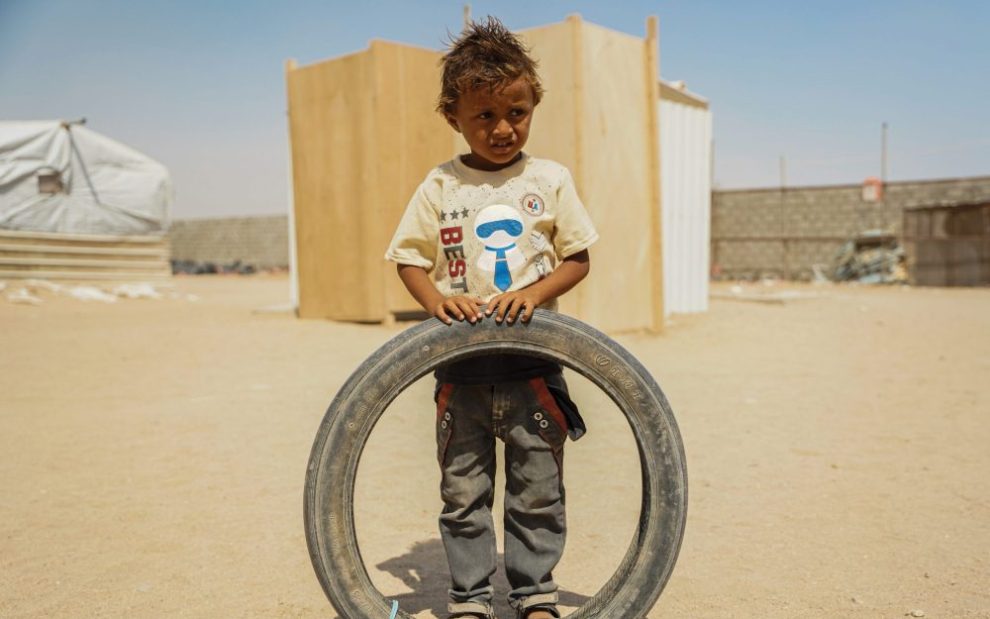The United Nations’ Convention on the Rights of the Child, approved by the general assembly on November 20, 1989, is the most widely ratified international human rights treaty in history. In fact, the only global holdout on the convention has been—can you guess?—the United States.
Although U.S. diplomats at the United Nations had a hand in crafting the convention, which treats the human rights of children as seriously as the human rights of grown-ups, successive U.S. presidential administrations have declined to bring the convention to the Senate for a ratifying vote. Why the holdout? It could be America’s paranoid style dislocating it from the rest of the world—again. Or maybe we’re just embarrassed that one of the richest nations in the world maintains one of the developed world’s highest rates of child poverty.
The convention and its predecessor, the Declaration of the Rights of the Child, adopted by the general assembly on November 20, 1959, share the same “birthday” as 1954’s Universal Children’s Day, now observed as World Children’s Day. Pope Francis, perhaps taking note of this annual acknowledgment of the global community’s special obligation to children, has dedicated his prayer intention this month to “children who are suffering, especially those who are homeless, orphans, and victims of war.”
“May they be guaranteed access to education and the opportunity to experience family affection,” Pope Francis urges—what most of us have come to believe is a normal childhood, in other words. But of course the world as it actually is has a way of collapsing understandings of normalcy. As conflict and climate change continue to threaten the lives and well-being of children around the world, there are indeed far too many suffering children who make a claim on our attention.
An annual U.N. report on conflict violence suffered by children found roughly 24,000 grave violations against children, including the killing of more than 2,500 children and the maiming of 5,500 others. U.N. officials report that as many as five children each day, probably more, are killed in Ukraine. The greatest numbers of violations against children were documented in Afghanistan, the Democratic Republic of Congo, Israel, the Palestinian territories, Syria, and Yemen.
Although it has hit older victims the hardest, COVID-19 has claimed the lives of thousands of children. More than 10.5 million children, including 214,000 in the United States, have become “COVID-19 orphans,” suffering the loss of one or both parents or other primary caregivers to the disease. The pandemic’s impact on educational attainment is still being assessed, but reports so far are worrisome. More than two years of shutdowns and school closings mean 153 million children worldwide missed more than half of in-person school days. In the United States, two decades of improvement in the performance of 9-year-olds in math and reading were erased, and World Bank researchers report that the percentage of 10-year-olds in low- and middle-income countries who “could not read a simple story” leaped from 57 percent prepandemic to 70 percent this year.
The pope consistently urges the church to attend to the world’s margins, where the most vulnerable people can be found. We think of those margins as geographic spaces or perhaps among people grouped by income, race, or ethnicity. This November it is the world’s children who tremble at the peripheries as the adult world around them soldiers on through pandemic, war, and faltering economies. Children cannot vote to change their circumstances. Their voices are muted by the adult cacophony around them. It falls on the world’s adults to protect them.
This article also appears in the November 2022 issue of U.S. Catholic (Vol. 87, No. 11, page 42). Click here to subscribe to the magazine.
Image: Flickr.com/EU Civil Protection and Humanitarian Aid (CC BY-NC-ND 2.0)
















Add comment